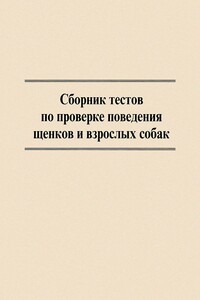Strelan, P., and T. Covic. “A Review of Forgiveness Process Models and a Coping Framework to Guide Future Research.” Journal of Social and Clinical Psychology 25 (2006): 1059–85.
Thompson, L. Y., C. R. Snyder, L. Hoffman, S. T. Michael, H. N. Rasmussen, L. S. Billings, and D. E. Roberts. “Dispositional Forgiveness of Self, Others, and Situations.” Journal of Personality 73 (2005): 313–59.
Tjaden, P., and N. Thoennes. “Full Report of the Prevalence, Incidence, and Consequences of Violence against Women: Findings from the National Violence against Women Survey,” U. S. Department of Justice, 2000. http://www.ncjrs.gov/pdffiles1/nij/183781.pdf.
Toussaint, L. L., D. R. Williams, M. A. Musick, and S. A. Everson-Rose. “Why Forgiveness May Protect against Depression: Hopelessness as an Explanatory Mechanism.” Personality and Mental Health 2 (2008): 89–103.
Vrana, S., and D. Lauterbach. “Prevalence of Traumatic Events and Post-Traumatic Psychological Symptoms in a Nonclinical Sample of College Students.” Journal of Traumatic Stress 7 (1994): 289–302.
Wiesel, E. Night. New York: Bantam, 1982.
Witvliet, C. V., T. E. Ludwig, and K. L. Vander Laan. “Granting Forgiveness or Harboring Grudges: Implications for Emotion, Physiology, and Health.” Psychological Science 12 (2001): 117–23.
Worthington, E. L., Jr., C. V. O. Witvliet, P. Pietrini, and A. J. Miller. “Forgiveness, Health, and Well-Being: A Review of Evidence for Emotional Versus Decisional Forgiveness, Dispositional Forgivingness, and Reduced Unforgiveness.” Journal of Behavioral Medicine 30 (2007): 291–302.
9
Helliker, K. “The Terminal Cancer Patient Who Won a Marathon.” The Wall Street Journal, March 22, 2013. http://online.wsj.com/article/SB100014241278 87323419104578374870179274496.html.
Iyengar, S. S., and E. Kamenica. “Choice Proliferation, Simplicity Seeking, and Asset Allocation.” Journal of Public Economics 94 (2010): 530–39.
Iyengar, S. S., R. E. Wells, and B. Schwartz. “Doing Better but Feeling Worse: Looking for the ‘Best’ Job Undermines Satisfaction.” Psychological Science 17 (2006): 143–50.
Lawler, P. “Big Idea: The Hell of Pure Possibility.” Bigthink.com, 2012. http://bigthink.com/rightly-understood/big-idea-the-hell-of-pure-possibility.
Nisbett, R. E., and T. D. Wilson. “The Halo Effect: Evidence for Un-conscious Alteration of Judgments.” Journal of Personality and Social Psychology 4 (1977): 250–56.
Salecl, R. The Tyranny of Choice. London: Profile Books, 2011.
Schwartz, B. The Paradox of Choice: Why More Is Less. New York: Ecco, 2003.
Schwartz, B. “Self-Determination: The Tyranny of Freedom.” American Psychologist 55 (2000): 79–88.
Thorndike, E. L. “A Constant Error in Psychological Ratings.” Journal of Applied Psychology 4 (1920): 25–29.
Tversky, A., and E. Shafir. “Choice under Conflict: The Dynamics of Deferred Decision.” Psychological Science 3 (1992): 358–61.
Zaleon, A. “Brain Cancer Patient Wins Gusher Marathon.” Beaumont Enterprise, March 11, 2013. http://www.beaumontenterprise.com/sports/article/Brain-cancer-patient-wins-Gusher-Marathon-4342280.php.
Эпилог
Kessler, R. C., A. Sonnega, E. Bromet, M. Hughes, and C. B. Nelson. “Posttraumatic Stress Disorder in the National Comorbidity Survey.” Archives of General Psychiatry 52 (1995): 1048–60.
Mitchell, G., and S. M. Darraj. Mairead Corrigan and Betty Williams: Partners for Peace in Northern Ireland. New York: Chelsea House, 2006.
Vrana, S., and D. Lauterbach. “Prevalence of Traumatic Events and Post-Traumatic Psychological Symptoms in a Nonclinical Sample of College Students.” Journal of Traumatic Stress 7 (1994): 289–302.

